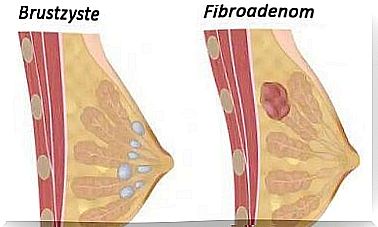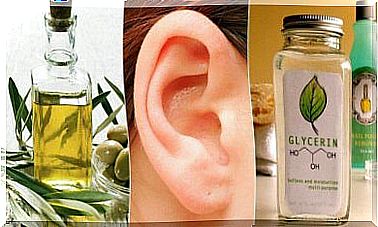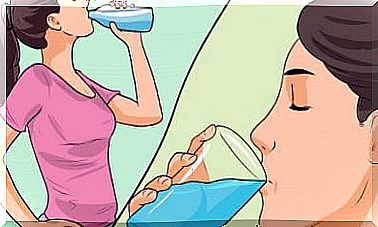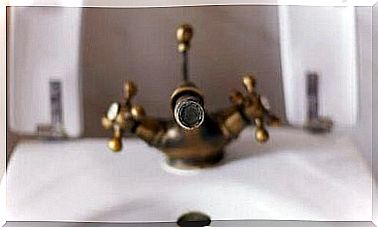Discover The Variety Of Effects Of Zinc
Zinc deficiency can be the cause of many everyday health problems, such as tiredness, frequent colds and poor memory.
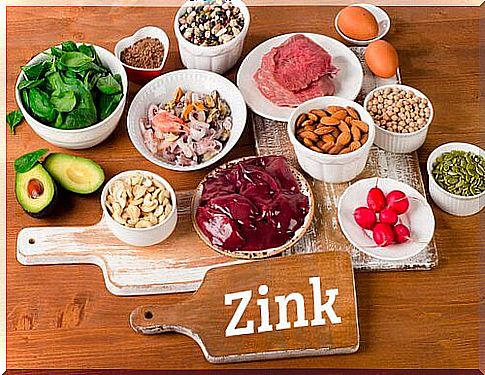
Zinc is a very important mineral for the body . Since zinc is only available in limited quantities in the body, it must be taken in as a supplement through the daily diet.
This micronutrient is essential for humans and a deficiency can have serious consequences. In this article we would like to explain the properties and effects of zinc in more detail.
What are the properties of zinc?
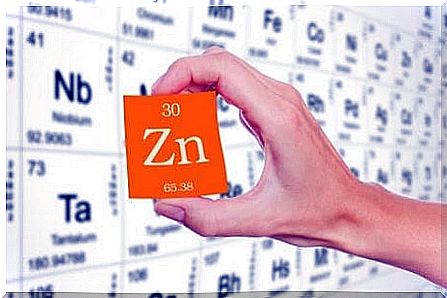
Before we can tell you more about the properties of zinc, we must first make a little detour.
In 1964, Dr. Pasad found that patients with anemia (iron deficiency) responded well to treatment with zinc supplements.
For the most part, this micronutrient is absorbed by the body in the small intestine. From there it is transported to the liver before it is further distributed to the rest of the body.
Zinc belongs to the group of the “100 most important enzymes”. It strengthens the immune system, helps with the processing of proteins and carbohydrates and with the production of insulin.
In addition, zinc counteracts free radicals in the body and therefore helps to maintain the elasticity of the skin. About 20% of the mineral is stored in the skin.
Over 85% is deposited as follows:
- iris
- Nails
- hair
- bone
- Testicles
- Muscles
Zinc is mainly removed through the stool, bile, and fluids in the intestines and pancreas.
It should be noted, however, that excessive consumption of legumes and refined grain products can greatly reduce zinc absorption.
The following things can also worsen zinc intake:
- anemia
- Infections
- heart problems
- Kidney problems
- alcoholism
- Stress (It can even reduce zinc levels up to three times faster than other causes.)
An important nutrient
Low zinc levels are associated with an increased risk of various diseases. The recommended daily amount is 8 mg for women and 11 mg for men.
However, some population groups may have an increased daily requirement:
- Children and babies
- People who are malnourished or generally poorly fed
- Pregnant and breastfeeding women
- Elderly people
- People with Celiac Disease
- alcoholic
- Vegetarians and vegans
- People who recently had surgery
- Patients with Crohn’s disease, ulcerative colitis, or poor intestinal absorption
- People with a weakened immune system
Zinc deficiency
Zinc deficiency is a serious problem for most people these days because their diet and lifestyle are severely deficient.
For example, a diet focused on seeds and grains can lead to a zinc deficiency, as arable land is low in zinc. Regular medication ( blood pressure medication, laxatives, or antacids ) and a busy lifestyle can be other determining factors.
Among other things, a zinc deficiency can have these consequences:
- Increased colds and flu infections
- Chronic fatigue
- Growth and development problems in children
- Mood swings
- Learning difficulties and poor academic performance
- Memory loss
- acne
- Visual disturbances
If the zinc deficiency is chronic, it can cause the following problems:
- Memory problems
- Visual, smell and taste disorders
- White spots on the nails (a problem that shouldn’t be ignored)
How does zinc work?
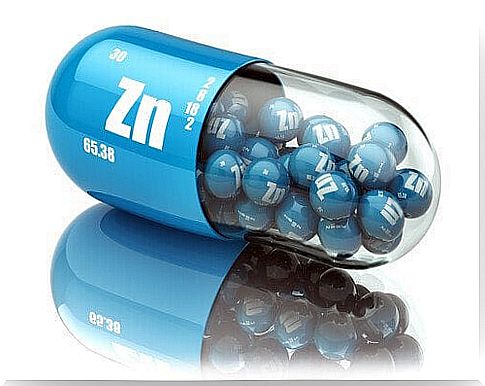
This micronutrient performs several functions and its potency should not be taken lightly. Its advantages include, for example:
Reduced risk of cancer
Zinc can lower the risk of cancer, even if the nutrient is not a cure for an existing cancer.
The mineral takes part in cellular replication. A deficiency can promote the development of tumors. Since zinc is also involved in the immune system, it can counteract dangerous cells.
If the zinc levels in the body are very low, the body tries to replace it with similar substances. The problem here is that the substances that are most similar to zinc, cadmium and mercury, have been linked to the development of cancer.
Growth and development

Since zinc also plays a major role in the formation and mineralization of bones and genital organs, it is an important part of children’s development.
In addition, zinc can reduce the formation of dental plaque and, together with calcium, manganese and copper, treat osteoporosis.
Better health for men
Zinc prevents the production of a certain testosterone derivative. If the values of this derivative rise sharply, this carries with it an increased risk of prostate cancer as a result.
Exactly the opposite happens when the zinc levels in the body are ideally matched. Erectile dysfunction and problems with libido can also be considered as further consequences.
Protection of the arteries
People with high cholesterol and triglycerides can use zinc to keep their arteries clean.
This mineral is also recommended for patients who have suffered a heart attack in the past and for people with other heart problems.
A strengthened defense
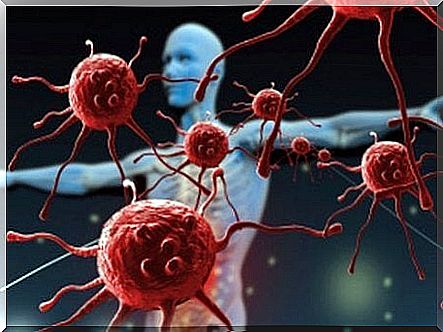
Research has shown that zinc can develop and strengthen the body’s defenses. It counteracts dangerous cells in the body and can neutralize them.
Zinc is also helpful in wound healing and in preventing many viral and bacterial infections such as colds.
If you’ve been feeling very weak and tired recently, a look at your daily zinc intake may provide some clues. Fatigue and other symptoms can also indicate a deficiency.
If you’re sick in bed with the flu, increasing your zinc intake can pay off. This can help speed your recovery.
Strengthening the skin, hair and nails
The skin can also benefit from good zinc levels.
Zinc deficiency can be seen on the skin. Brittle skin, psoriasis, frequent bruising, acne and eczema can result. If the values are low, the skin can age prematurely. As a further consequence, an existing herpes infection can flare up again.
Other properties of zinc

As if that weren’t enough, zinc has a few other goodies worth knowing, because it:
- Fights the age-related regression of the nerves.
- Improves smell and taste.
- Treats Wilson’s disease, a condition in which copper builds up in the body.
- Increases estrogen production in women.
- Improves insulin sensitivity.
- Helps with nutrient absorption, improves gastric juice activity and relieves diarrhea.
- Promotes the development of the nervous system and reduces the risk of Alzheimer’s disease.
- Balances the acid-base balance in the blood.
- Protects the liver.
- Reduces tinnitus.
What are the best sources of zinc?
Now that you know how important zinc is for your body, you can ingest it through the following foods:
- Fish, oysters and shellfish
- Offal (especially liver)
- flesh
- nuts
- Seeds (pumpkin seeds, sesame seeds)
- Wheat germ and cereals (brown rice, oats, rye)
- Legumes (chickpeas, lentils)
- Bee pollen
- Leafy vegetables (lettuce, spinach, Brussels sprouts)
- Cucumber
- Bananas


